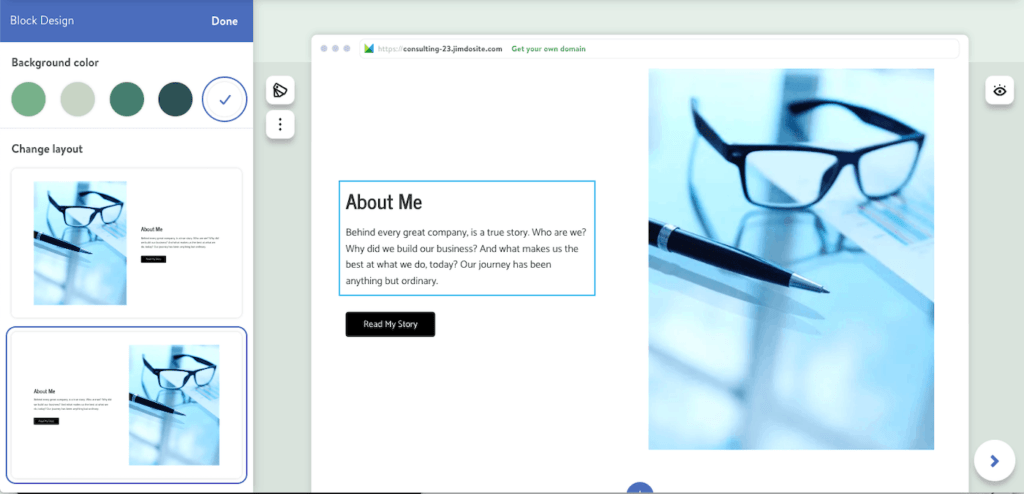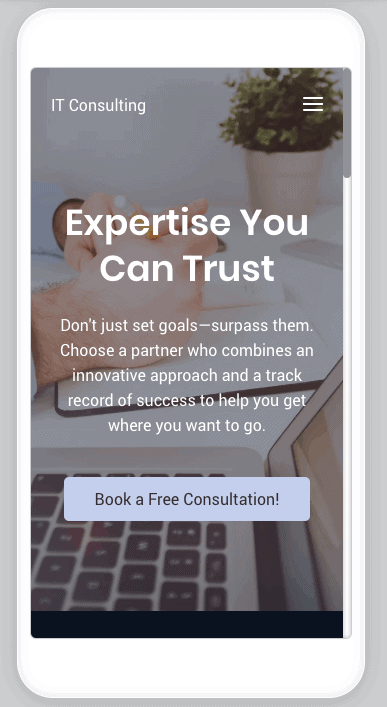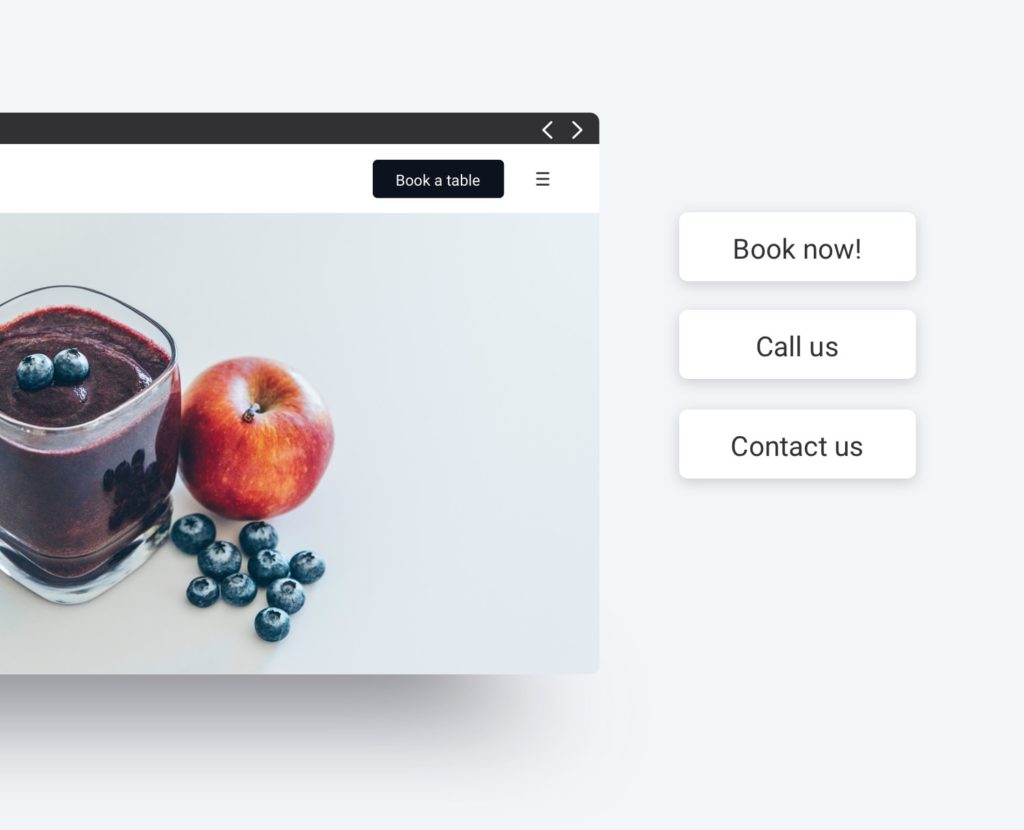If you are running a consulting business or any other kind of professional independent services, building a website is more vital than ever before. Nearly every prospective client will visit your website to decide whether or not to trust you with their business, so having a great website can be the difference that swings client decisions in your favor.
But what does a great consultant’s website even look like? In short, your website should sell your individual talents, skills, knowledge, experience, and innovative solutions. Your professional website is your opportunity to create a strong online presence, clearly exhibit your unique strengths, establish your authority status, and persuade clients to work with you.
How to build an independent consultant website:
Here are my top seven tips for transforming your consultant website into a major client generator with a steady stream of quality leads.
- Communicate your value
Write a short sentence or paragraph that explains what makes you unique, and put it front and center on your website.
- Pick a user-friendly website design:
A clear, simple design with an easy-to-follow website navigation is your best bet.
- Delivery informative, client-focused content:
Offer advice, tips, and solutions that will help your prospective clients, instead of just talking about yourself.
- Include an obvious Contact button
Put a clear call-to-action on your website, where people can click to take the next step.
- Use your website to start building relationships
Add a contact form and links to your social media accounts so you can continue to connect with clients.
- Legitimize your business
Build trust and credibility by providing photos, testimonials, case studies, and logos from companies you’ve worked with.
- Keep your site fresh and SEO-friendly
Add new content regularly and optimize your pages so that search engines can find you.
1. Clearly communicate your value
When first landing on your website’s homepage, prospective clients will be on the hunt for your value proposition. As your unique selling point (USP), the value proposition should be the first thing that visitors see when clicking on your website link. Whether in just a sentence or a short paragraph, it is essential that you instantly draw prospective clients in by articulating exactly what you do, who you can do it for, and what makes you the best choice.
As an independent consultant, it’s essential to show your face on your website to stand out in a sea of qualified competition. It’s a good idea to incorporate a slideshow of pictures, videos, and graphics to immediately connect with visitors as well as communicate the value of your services.
2. Pick a user-friendly website design
Like any other site floating in cyberspace, it is important for a consultant’s website to be designed with the user in mind. Rather than focus on a flashy design, make sure you take into consideration how your prospective clients will actually use your website. Jimdo is one of the best website builders for consulting businesses because you don’t have to design it yourself or pick from a million templates. The intelligent system puts all the pieces together for you in a modern, sleek design, so it’s perfect for even the most design illiterate.

On most independent website consulting examples, you’ll see that they keep the top navigation bar simple and direct, so that it’s easy for people to find what they need: Home, About Me, Testimonials, Services, Blog, and Contact.
You can also add a contact button to your navigation menu bar, so that it’s really easy for people to get in touch with you with just a click.
3. Deliver informative, client-focused content

In order to make your consulting website succeed and boost its search engine rankings, you will need to continually add informative content that is focused on offering advice, tips, and solutions for your prospective clients. Don’t limit your website’s content to strictly boasting about your practices and detailing what services you offer. In all honesty, clients will rarely care about your consulting services until they’re convinced that you have the knowledge to help.
Of course, one of the best ways to do this is to write high-quality original content for your website, either on your web pages or in blog posts. Take this opportunity to give clients a glimpse of your personality, sense of humor, and the way you approach problems—this will give them a sneak preview of what it’s like to hire you as a consultant.
You can also engage your visitors in the content even more by transforming it into an infographic. Infographics are a great way to communicate ideas in a way that is visually appealing and easy to understand. Even if you don’t have design skills, you can use tools like Canva or PiktoChart to build your own graphics. You can also create your own icons and edit photos, even if you don’t have Photoshop.
4. Make it easy to interact and get in touch
For each post on your blog or website, you should give the option for clients to share the information on social media platforms, including Facebook, Twitter, Pinterest, LinkedIn, and Tumblr. Not only will this help create engagement for your visitors, but it will also drive traffic to your consultant website for generating solid leads.

You should also make it as easy as possible for clients to do the most important thing you want them to do—get in touch with you. Put a clear call-to-action on your site, where people can click to take the next step.
As a consultant, you might offer clients the chance to book a free one-on-one 30 minute consultation with you, so that you can get to know each other. With Jimdo, you can link a button directly to the booking service of your choice, so that customers can schedule appointments with you right without leaving your website. Most bookings are made outside of business hours, so having a booking service take care of this for you means that you can catch clients after hours without being tied to your phone.
5. Build client relationships through interaction
As a general rule of thumb, consultants should interact with prospective clients without being too pushy or intrusive. One of the greatest parts of having a consultant website is having the ability to easily nurture both new and old relationships with clients. That being said, bombarding clients with salesy pitches can lead to a loss of interest quickly. I suggest that you send clients high-value content at regular intervals to convince them you have what it takes to help them, without going overboard.
Consultants should always use emails, online newsletters, blog posts, webinars, and other simple web-related tools to easily stay in touch with clients. You may want to offer a free valuable video, audio, or article series on an interesting topic to draw in potential clients. Add a link to your email newsletter service to have visitors enter their email address to sign up for updates. Notifying clients when you are offering a new service or post is how you develop strong client relationships.
Learn how to start your own website today!
6. Legitimize your business
If you have any hope of converting visitors into long-term clients, you are going to have to legitimize your consulting business to prove that you are real and you have the qualifications needed.
Since it is crucial that you build credibility, I always recommend that consultants show pictures of their office environment, provide thorough background information, highlight their accomplishments, display logos of companies they’ve worked with, and include case studies. Showing your physical address on your website will also clearly communicate to clients that you are fully accessible.
Furthermore, I find that posting testimonials from previous clients can go the extra mile towards alleviating any hesitation that visitors may have over doing business with you. I recommend creating an entire testimonial page filled with comments from previous or ongoing clients, with information about them to establish credibility. Don’t be afraid to simply ask your satisfied clients to jot down a quick reply describing the positive experience that came from working with you and place this on your website.
7. Keep your site fresh and SEO-friendly
Since a great website is worthless if no one can find it, take advantage of the various marketing strategies available to drive more traffic your way. Keeping your content up to date with new writing, testimonials, and information will be useful to your potential clients, but it will also improve your ranking in search engines.
Whether or not you are interested in using pay-per-click advertising, you should always make certain your website’s content is optimized with the latest SEO strategies to generate a high ranking in Google and other popular search engines. Choose strong long-tail keywords that closely relate to your consulting services and integrate them within the content scattered throughout your website.
Rather than being an afterthought, a consultant’s website should play a prominent role in marketing the practice to both new and current clients to stand out in today’s increasingly crowded marketplace. To review, make sure your website has:
- A succinct, easy-to-read value proposition
- A clear, streamlined design without a lot of clutter
- Updated content that clients will find useful and informative
- Easy ways to get in touch: share buttons, contact information, and clear calls-to-action
- Client testimonials, photos, success stories, and other ways to show that you are the real deal

